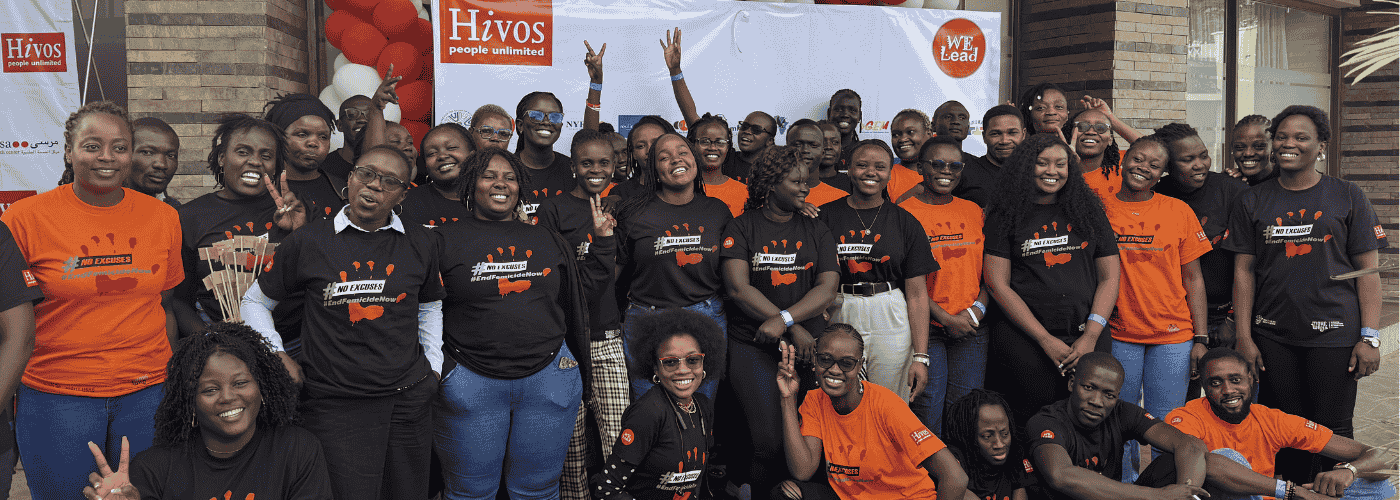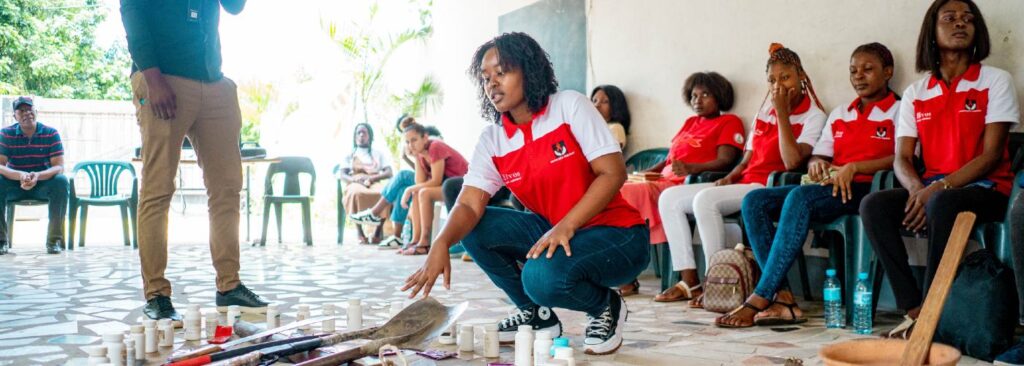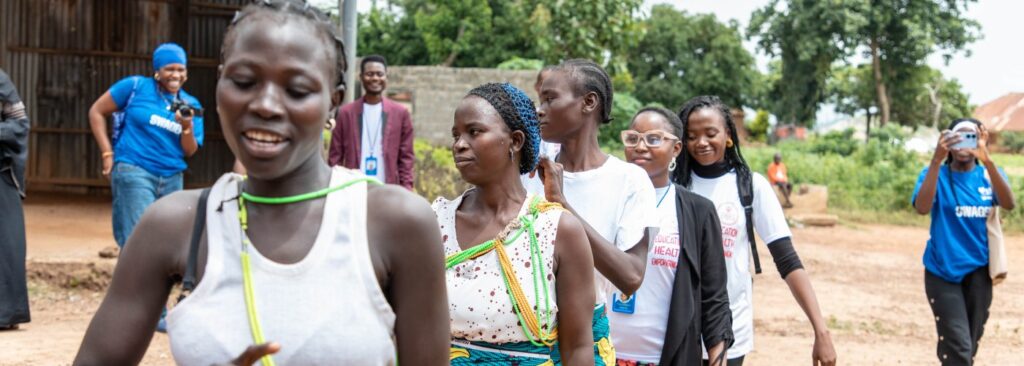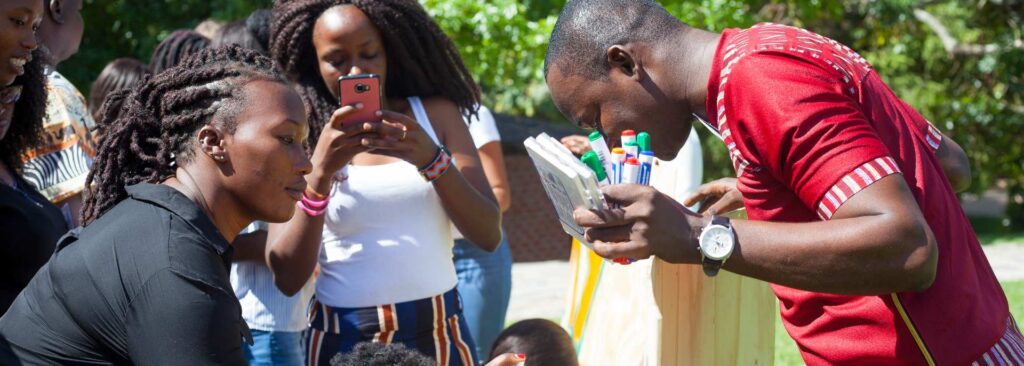Gender-Based Violence (GBV) remains one of the most widespread human rights abuses globally. Shockingly, it is estimated that 1 in 3 women worldwide will endure physical or sexual violence at some point in their lives. The safety of women, especially young girls, is threatened across the globe. To support the global call to end violence against women and girls, the Hivos We Lead program organized a summit for women and girls in Nairobi from 26 to 28 November 2024.
The event brought together a diverse group of stakeholders from Kenya, Uganda, and Nigeria, including Communities of Action (CoAs), rightsholders, policymakers, consortium partners, duty bearers and allies. This gathering provided a platform to discuss and strategize on critical issues, reinforcing the commitment to creating a safer and more equitable world for women and girls.
The femicide crisis in Africa: an unprecedented disaster
As the event was held in Nairobi, femicide had to be a focal point. Kenya has been grappling with an alarming and unprecedented surge in femicide, which has profoundly shocked the entire nation, leading leaders of civil society lobby groups asking the president to declare femicide a national disaster.
Nigeria is also facing a serious femicide crisis. Deep-rooted socio-cultural beliefs that undervalue women’s lives are a significant factor in Nigeria’s femicide crisis. In many communities, the birth of a boy is celebrated more than that of a girl, leading to both infant and adult femicide. This highlights the urgent need for societal change and greater protection for women and girls.
“In many Nigerian societies, men still assert control over women. Cases of men killing women over trivial issues like food, talking back, or earning more are common. Much of the femicide stems from intimate partner violence, reflecting men’s dominance over women’s lives.” Funom Yakubu, COA facilitator, Nigeria

Collective action against normalized violence
The alarming surge in femicide cases in Kenya and the African region in general has significantly impacted the sense of safety among women, including the We Lead Girls Summit participants. Reports of violence, often committed by intimate partners or family members, have heightened fear and insecurity. This is further exacerbated by a lack of trust in law enforcement and judicial systems, where justice for victims is frequently delayed, complicated, or denied.
The summit aimed to create a powerful platform for advancing Sexual and Reproductive Health Rights (SRHR) among the rightsholders —young women affected by displacement, young women with disabilities, young women who are sexual minorities, and young women living with HIV in Kenya, Uganda, and Nigeria. By addressing these critical issues, the summit sought to empower young women to advocate for their rights and safety.
“The [Kenyan] president should officially declare femicide a national crisis and disaster, assuring the public that his administration is actively working to protect women and girls across the country.”
Between August and October, the Kenya National Police Service reported 97 cases of femicide. The real numbers must be higher since some of the cases don’t get reported to authorities. This alarming trend underscores the critical need for concentrated efforts and collaboration to address the pervasive issue of gender-based violence in our society. This has caught the attention of the president who has promised to allocate more resources to security agencies to combat femicide. The Kenyan President Ruto committed Ksh.100 million to the Safe Home, Safe Space Campaign, which aimed to eradicate femicide across the country.
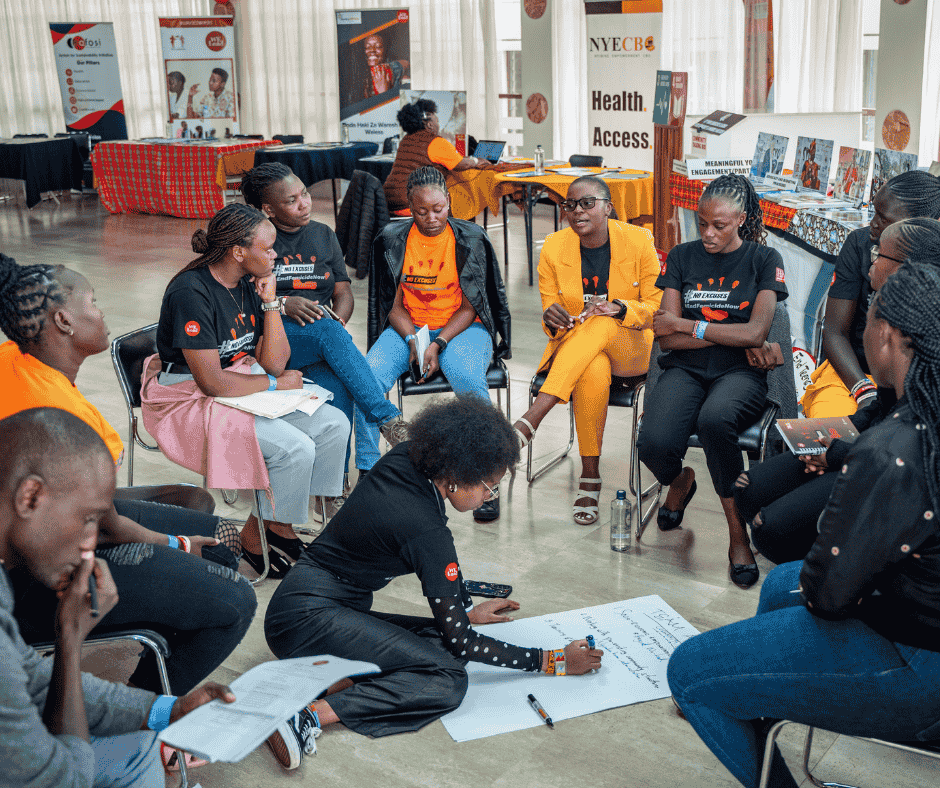
Reflections from the summit
At the summit, young girls and women voiced their concerns over the increasing incidents of femicide, particularly targeting them. They called for the empowerment of women, the amplification of their voices, and strict accountability for perpetrators. They emphasized that this issue is not just a women’s issue but a societal crisis requiring everyone’s involvement.
“As a young champion, I believe the root cause lies in entrenched patriarchy, toxic masculinity, and a culture of impunity. Violence is about power. To address this, we need collective action: stricter laws and their enforcement, better support systems for survivors, and widespread education to dismantle harmful norms.” Malkia John from Kenya
Participants called on society to stop the culture of blaming victims as it only deepens the trauma survivors face and shifts focus away from the real problem; the perpetrator adding that conversation should be about fostering respect and safety for everyone, not scrutinizing a victim’s actions.
“When people say, “she should have been careful,” they normalize violence instead of condemning it. No one asks to be harmed. Perpetrators must be held accountable. We collectively need to create a culture where survivors are supported, not judged.” Malkia John from Kenya
The Netherlands Embassy in Nairobi called for everyone to come together to support all efforts geared toward eliminating all forms of violence against women and girls.
“Femicide is now an everyday reality, the statistics are scary and these are only the officially reported cases. We have to act and we have to act now.” Johnstone Kuya, representative of the Netherlands Embassy
Local and national officials commended the Hivos We Lead program for empowering women and girls and combating SGBV in their communities. National Gender and Equality Commission member, Commissioner Caroline Letumpuru, praised We Lead’s efforts in giving a voice to the voiceless in Kenya.
“The We Lead Program has been instrumental in our county’s efforts to combat the triple threat of new HIV infections, early pregnancies, and sexual and gender-based violence (SGBV) among young people.” Dr, Marion Mukira, Kajiado County.
We Lead Global Program Manager Nyambura Gathumbi also expressed concern over the rising cases of femicide not only in Kenya but across the African region and expressed Hivos commitment to support the fight against all forms of SGBV and femicide.
“We have to foster critical conversations about harmful practices and promote positive cultural change.” Nyambura Gathumbi, We Lead Global Program Manager.

